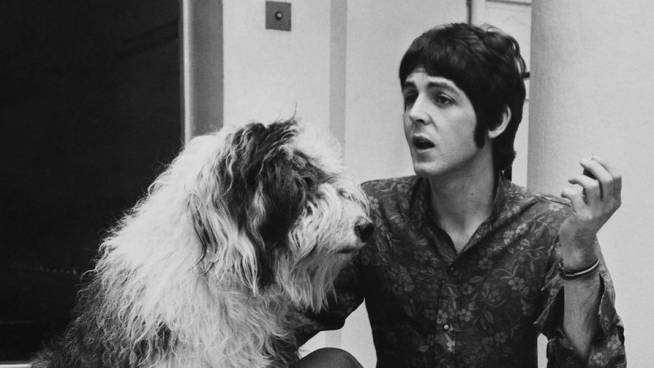Yesterday It is considered the most covered song of The Beatles. One morning in 1963, Paul McCartney woke up and suddenly the right melody came to him. “Upon opening his eyes, he jumped out of bed and walked down to the piano in the music room, where his fingers found the right keys,” he shares. Peter Ames Carlin in the book Paul McCartney: The biography.
The song is among the best of the 20th century, composed by John Lennon and Paul McCartneyand belonging to Help!the band’s fifth studio album. Now, Paul McCartney has remembered (or confessed, for those who didn’t know) what the origin of his lyrics was. And he is not talking about romantic love, but about something that he himself defines as somewhat “embarrassing”. The story hides in her past and the protagonist is her own mother.
The Beatles: Ringo Starr, Paul McCartney, John Lennon and George Harrison, in an archive image. / John Rodgers
The singer and songwriter of The Beatles recognized in his podcast McCartney: A Life in Lyrics, that Yesterday was born under the influence of the feelings that blossomed after the death of his mother in 1956, when he was only 14 years old. Thinking, he remembered an exact moment that he wished hadn’t happened, and that inspired much of the song.
“Some people asked me if it was a song about the loss of my mother. To which I always responded: ‘No, I don’t think so,'” the artist noted. But the lyrics had this meaning: ‘Why did he have to leave? I don’t know, she didn’t say it’ (Why’d she have to go? I don’t know, she wouldn’t say). “When I lost my mother to cancer, no one said anything. We didn’t know at all what it was.“, he confessed in the program.
The inspiration: his mother
Paul MCCARTNEY He thus recalled a story with his mother that has been circling in his head, even after her death. “I remember very clearly one day when I embarrassed my mom. We were in the backyard and she was speaking in a refined manner. She was of Irish origin and was a nurse, so she was above street level,” she began to tell herself, assuring that she spoke differently than the citizens of the place where they lived: “She spoke in a way that we thought was a bit refined. And he had a bit of a Welsh accent too – he had connections, his aunt was Welsh.”

Paul McCartney wrote songs to his dog. He wrote a song for his dog Martha, titled “Martha, my dear” that appears on the 1968 album, The White Album.
A fact that the artist sometimes highlighted about his mother. Apparently, among other things, the woman mispronounced the word “ask” – because she said “arsk” -. One day, McCartney exclaimed: “Arsk! Ark! It’s ‘ask,’ mom,” embarrassing his mother. The artist admitted that he would like to have avoided this situation: “I remember thinking later ‘God, I wish I had never said that’“.
Although history played tricks on his memory, it is clear that gave Paul McCartney and the history of music a song to remember. One of the most important songs of the past, present and future. Now, The Beatles have yet to release their own four-film biopic, one dedicated to each member of the band, which is scheduled to be released in 2027.






